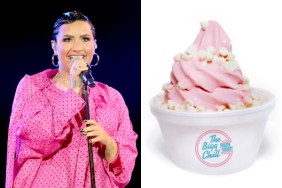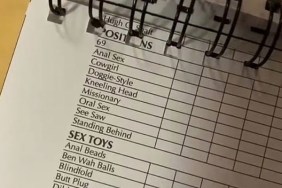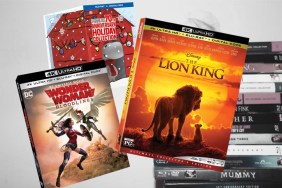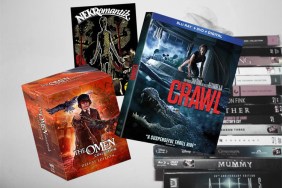Frozen is a great Disney adventure, but like the best animated features, or the best stories in general, it’s about more than just its linear plot, in this case about an ice princess and her freezing powers. Frozen is really about a powerful subtext, just like Toy Story is really about figuring out who you are, and Toy Story 2 is really about the existential crisis of choosing who you want to be, and Toy Story 3 is about reminding people what Toy Story 2 was about (yeah, I said it).
Frozen is indeed about princess Elsa (Idina Menzel, no Adele Dazeem jokes here), whose ice powers can be dangerous. After she accidentally injured her sister Anna (Kristen Bell) as a child, their parents decided to isolate Elsa so she couldn’t hurt Anna again, or anyone else. Plus, some trolls wiped Anna’s memory so she doesn’t even know why Elsa won’t play with her anymore.

Already, Frozen is about the dangers of “protecting” someone you love by shutting them out. It’s something parents do all the time, and it’s not even overprotective, it’s just regular protective. Keeping children away from dangers has its place, but danger doesn’t go away when you avoid it. Rather, it remains dangerous, and now the people you’ve “protected” never learned how to face danger. They’re as helpless as when they were children. In this case, Elsa never learned how to control her powers. She just tried to hide them, and that never works.
To go another level deeper, her powers are triggered by her feelings, so her parents were essentially trying to teach Elsa not to have feelings. I can’t help but think of misguided parents in less evolved times trying to “teach” their children not to be gay. Yes, Frozen is about coming out and, if one set of people fears you, finding another group who accepts you. In the parents’ defense, they die before their daughters fully mature, so it’s entirely possible they were working up to accepting Elsa coming out as an ice princess, but all their actions have far reaching repercussions. One must question if sequestering Elsa would ever have amounted to something positive in any context.

Anna was deprived of a relationship with her sister, which is the real tragedy of Frozen. This is what happens when you try to hide the problem away instead of dealing with it, or indeed when you even label something a problem just because it frightens you. Ice powers were a fact of their life and they should have worked harder to allow Anna and Elsa to deal with the dangers of it together, just like athletic boys might roughhouse growing up but you don’t forbid them from playing sports. As another great myth told us, with great power comes great responsibility, and Frozen is about Elsa learning to take responsibility for her powers rather than fearing them.
Elsa stopped developing her powers as soon as they got scary, and she grew up hating herself. As she learns by the end, there were beautiful aspects of her power, as there are usually multi-faceted aspects of any attribute. It’s tragic that she was deprived of her gift for so long and only lived with the burden, but that’s what Frozen is about. This stunted Anna’s development too because she never learned how to interact with people and measure the good against the bad. This makes her vulnerable when Hans (Santino Fontana) seduces her and she naively accepts his marriage proposal on the first day. She never learned what love looks like so she can’t discern a ruse from the real thing.

This is all added bonus content to the simple fact that hiding Elsa doesn’t work. She eventually does have to appear in public for the kingdom, and since she never learned to handle her feelings, they just explode in a crisis that freezes the entire kingdom. The perceived dangers of her powers became a self-fulfilling prophecy. When Elsa runs away and builds her own ice kingdom, it is empowering but still misguided. Elsa still thinks she can only be herself as long as no one else is around. She’s still reflecting the lesson that her true self is something to be feared. Few people get this right before their teenage years end, so Frozen is really about all of us learning that we can share our unique qualities with the world, as long as we also develop the maturity and responsibility to understand how our powers work and when it’s the right time and place.
Anna goes after Elsa with the help of an ice courier named Kristoff (Jonathan Groff) and it’s not as simple as telling Elsa she’s okay and should accept Anna’s love. The dangers of Elsa’s powers still manifest, as the story continues to deepen over an hour in. Elsa has to learn that she controls the outcome of her powers, and she’s forced to when it’s her sister’s life on the line. It may seem obvious, but there will never be too many stories about love triumphing over fear. In fact, you may know that in the history of Frozen’s development, Elsa was originally a villain. The filmmakers added an important layer to the story in order to give Elsa a positive journey.

It’s Anna’s journey too. Frozen is a love story between the two sisters, and the fact that Anna meets a cool dude along the way is incidental. The thing about true love’s kiss is a bit of a misdirect, one that I saw coming. I mean, I knew whose “true love kiss” would really be the one Anna needed, but letting the characters figure it out is powerful. We’re dealing with a metaphor about owning one’s power in the face of persecution, so the metaphor is only complete when they own that power themselves. It’s always a good thing when stories deal with a love that’s deeper than “boy meets girl.” There’s nothing wrong with meeting a cool dude on your adventure, as long as it’s not the end all be all for going on the quest.
There’s also a talking snowman, ice battles, wolf chases and all sorts of exciting fun stuff in Frozen. It’s just that it’s so deep, it gets me going on all the themes. It’s like screenwriter Jennifer Lee wanted to riff on all the Disney tropes with loving homage, but a sense of righting some wrongs. There’s a little “kill the beast” in there, certainly the Prince Charming and Damsel in Distress myths. Perhaps the biggest subversion is of the whole Disney archetype: a lone outcast leaving his/her home to discover his/her surrogate family out there, and returning with them to take his/her rightful place. Frozen is about loving the family you have.

Bonus features are light, which might also qualify Frozen for the Save It For The Special Edition Award. Eventually there’ll be a Diamond Edition, but I don’t really mind that there’s not a feature length audio commentary or in-depth features about how animation is made. I know that already. In fact, “The Making of Frozen” has no actual information about how the film was made, but it’s an awesome musical number in the halls of Disney Animation. I hope that’s available on iTunes. A seven-minute feature on Disney and Hans Christian Anderson is informative about Walt Disney’s interest in Anderson fables. Deleted scenes include some early versions of Elsa as a villain, and the music videos include “Let it Go” in Spanish, Italian and Malaysian! The Oscar-nominated short Get a Horse! that accompanied the film is also included, only now you get to decide whether you watch it first or jump right to Frozen.

Fred Topel is a staff writer at CraveOnline and the man behind Best Episode Ever and The Shelf Space Awards. Follow him on Twitter at @FredTopel.








